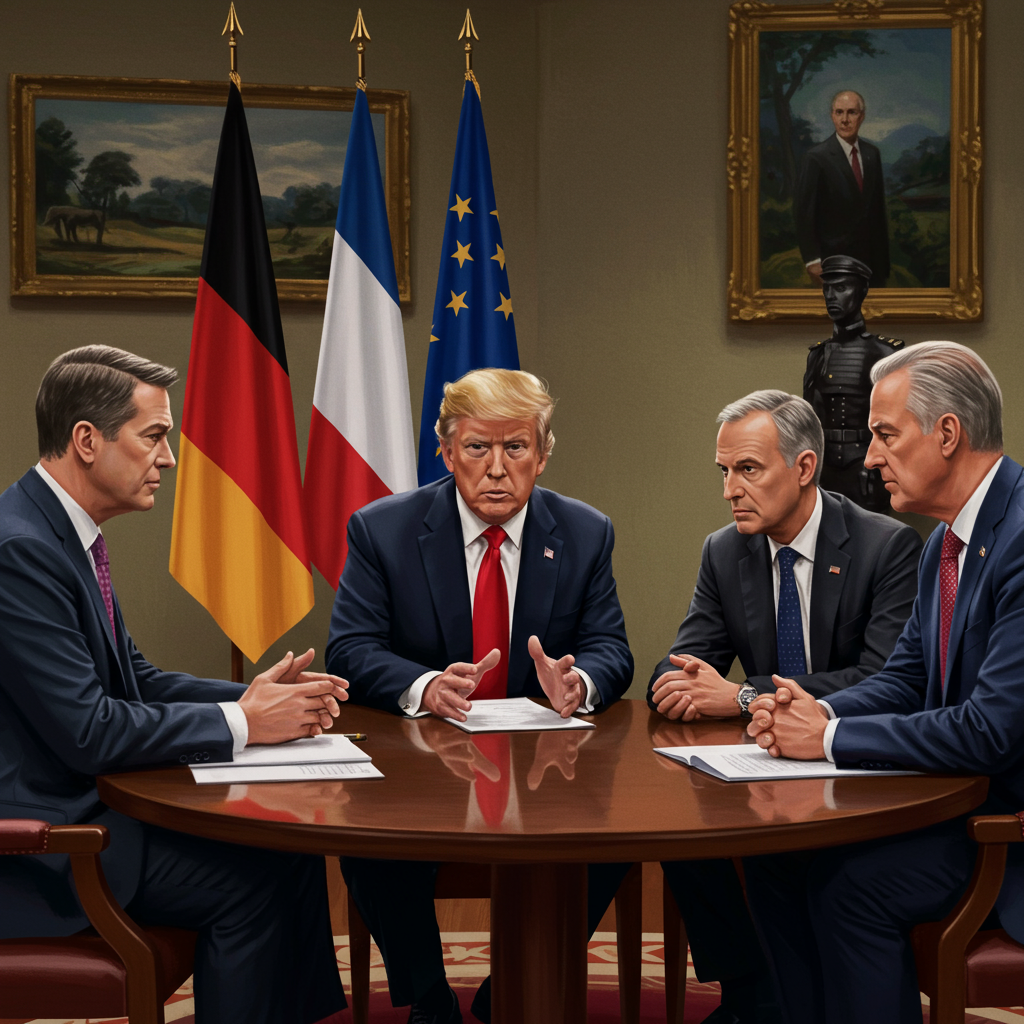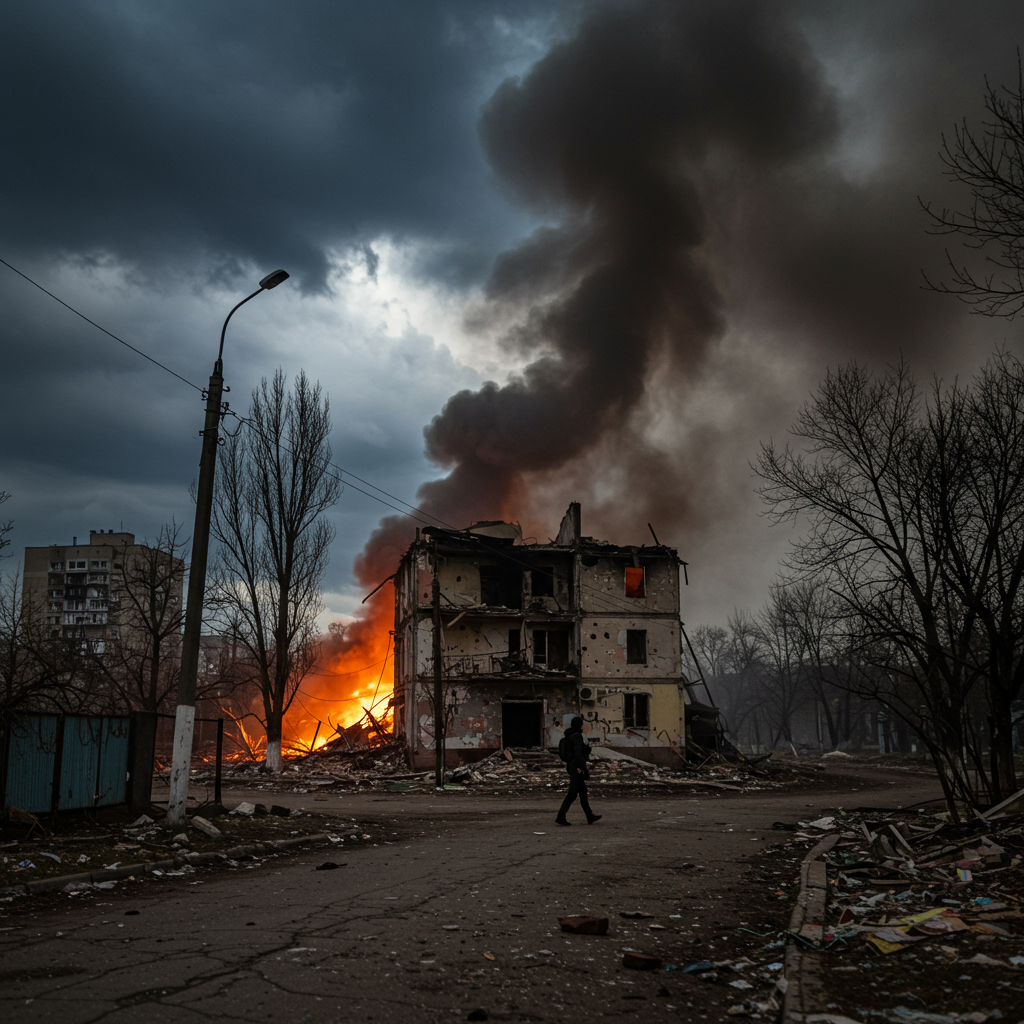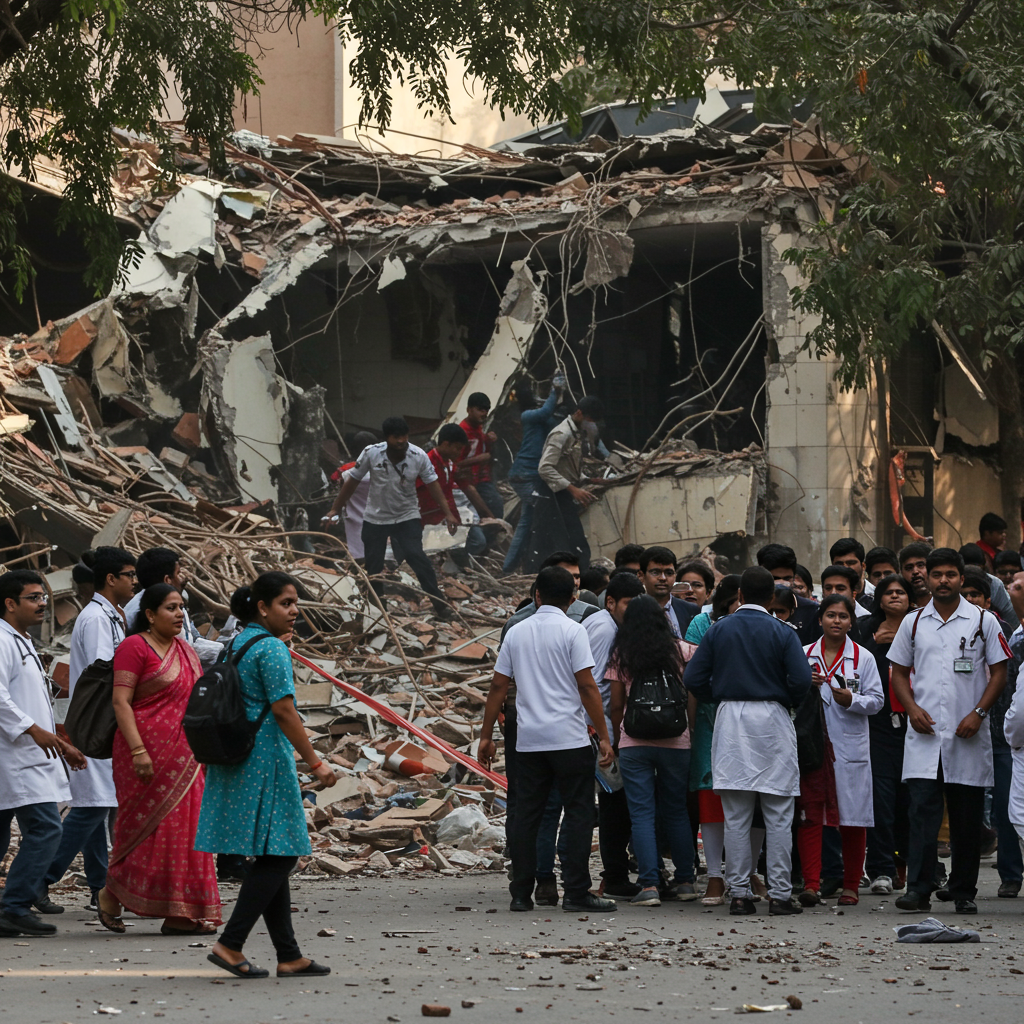Europe’s High-Stakes Diplomacy to Prevent US Action in Iran
As a week-long conflict between Israel and Iran intensifies, European powers are engaged in an urgent diplomatic push aimed squarely at Washington: convincing President Donald Trump to choose negotiation over military action. With Israel reportedly urging the United States to bomb Iran’s underground nuclear facilities, a critical window has opened for Germany, France, and the United Kingdom to offer Trump an alternative path – an “off-ramp” from potential war.
Foreign ministers from the three nations, joined by the EU’s top foreign affairs representative, are set for emergency talks in Geneva with Iranian officials. This last-ditch effort comes as Trump indicated on Thursday he would decide within two weeks whether to order U.S. military strikes, adding that he believed there was a “substantial chance of negotiations.” This unexpected timeframe provides a narrow opportunity for diplomacy to avert what many fear could escalate into a far larger and more devastating regional conflict.
The European Challenge: Diminished Influence and High Stakes
The current crisis starkly highlights Europe’s weakened standing in Middle East diplomacy, a consequence felt since the U.S. withdrawal from the Iran nuclear deal, formally known as the Joint Comprehensive Plan of Action (JCPOA). Signed in 2015, the JCPOA saw Iran significantly restrict its nuclear program in exchange for sanctions relief. The deal, which European powers helped broker alongside the U.S., aimed to extend Iran’s theoretical “breakout time” to produce fissile material for a weapon, providing international powers time to respond.
Under the JCPOA, Iran limited uranium enrichment levels (capped at 3.67%), reduced its stockpile, restricted centrifuge use, and agreed to enhanced inspections by the International Atomic Energy Agency (IAEA). For Iran, the primary gain was relief from crippling international sanctions that had severely impacted its economy.
However, when President Trump withdrew the U.S. from the agreement in 2018 and reimposed stringent sanctions, the deal began to unravel. Europe struggled to counteract the U.S. economic pressure, and Iran, viewing the U.S. action as a violation and Europe’s efforts insufficient, began incrementally exceeding the deal’s limits. By late 2023, the JCPOA was widely considered effectively defunct, with Iran increasing enrichment levels (IAEA detected particles enriched to 83.7% in 2023) and restricting some IAEA access, significantly shortening its potential breakout time.
This history underscores the challenge facing European diplomats today. Having lost much of the leverage provided by the JCPOA framework, they now face the difficult task of convincing both a hawkish Israeli government and a U.S. president known for prioritizing unilateral action and transactional deals.
While Europeans aim for a return to guarantees that Iran’s nuclear program is solely for civilian purposes – the core objective of the original negotiations – Israel’s demands are far more extensive: complete dismantling of the nuclear program, elimination of ballistic missile capabilities, and an end to financing proxies.
Understanding Trump’s Calculation
Influencing President Trump requires navigating complex factors. While Israel is actively lobbying for U.S. military intervention, Trump faces domestic considerations. Elements within his political base express opposition to new foreign military entanglements, and he has previously campaigned on a promise to be a “peacemaker,” avoiding costly wars abroad.
Analysis of Trump’s foreign policy approach suggests a focus on securing tangible “wins” for domestic presentation, often through transactional negotiations that may sideline traditional allies. In this context, an “off-ramp” on the Iran conflict could be perceived not just as avoiding a military quagmire, but as a strategic outcome aligning with his “America First” principles. Achieving a diplomatic resolution, potentially alongside efforts in other regional conflicts, could be framed as successfully bringing multiple international tensions to a head through his leadership.
For Europe, the Geneva talks serve partly as a crucial channel to ensure Iranian intentions regarding their nuclear program are communicated directly to the Americans. As French Foreign Minister Jean-Noël Barrot stated, European nations are ready to offer a comprehensive formula addressing nuclear issues, ballistic missiles, and regional activities, contingent on a ceasefire and Iranian willingness for dialogue, including with the U.S.
British Foreign Secretary David Lammy’s meeting with U.S. Secretary of State Marco Rubio in Washington shortly before the Geneva talks highlights the critical need for transatlantic coordination, though the dynamics are complicated by the UK government’s desire to balance alignment with the U.S. with the imperative to de-escalate.
A Narrow Path for Diplomacy
The prospects for a major diplomatic breakthrough in Geneva remain uncertain. The chasm between European and Israeli objectives is significant, and ultimately, the decision rests with President Trump.
However, the existence of a two-week window and Trump’s acknowledgment of a “chance of negotiations” offer a sliver of hope. It would be a notable twist of fate if the European diplomatic alliance, whose influence over Iran policy was significantly curtailed by Trump’s withdrawal from the JCPOA, could now provide the necessary diplomatic space for him to avoid a potentially catastrophic military conflict, perhaps even aligning with his own domestic political imperatives. This eleventh-hour scramble represents Europe’s critical push to capitalize on that slim possibility and steer the situation away from the brink of a wider war.



